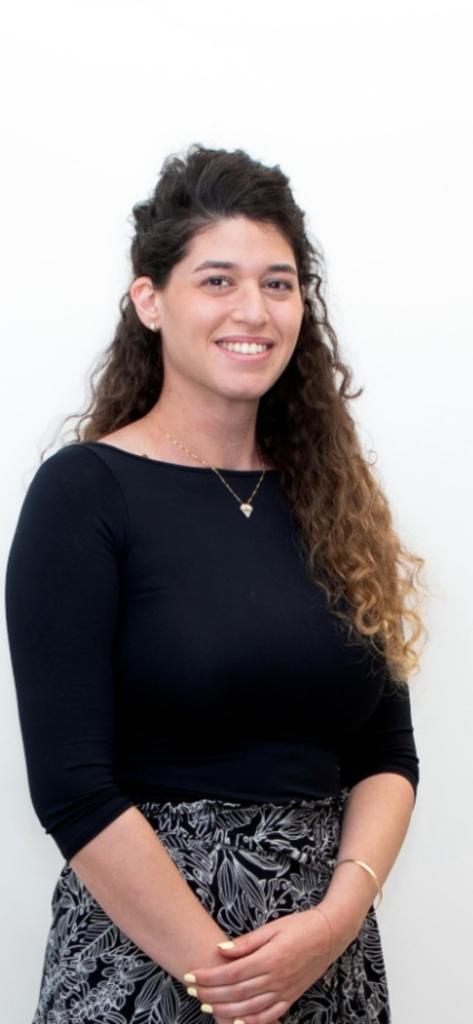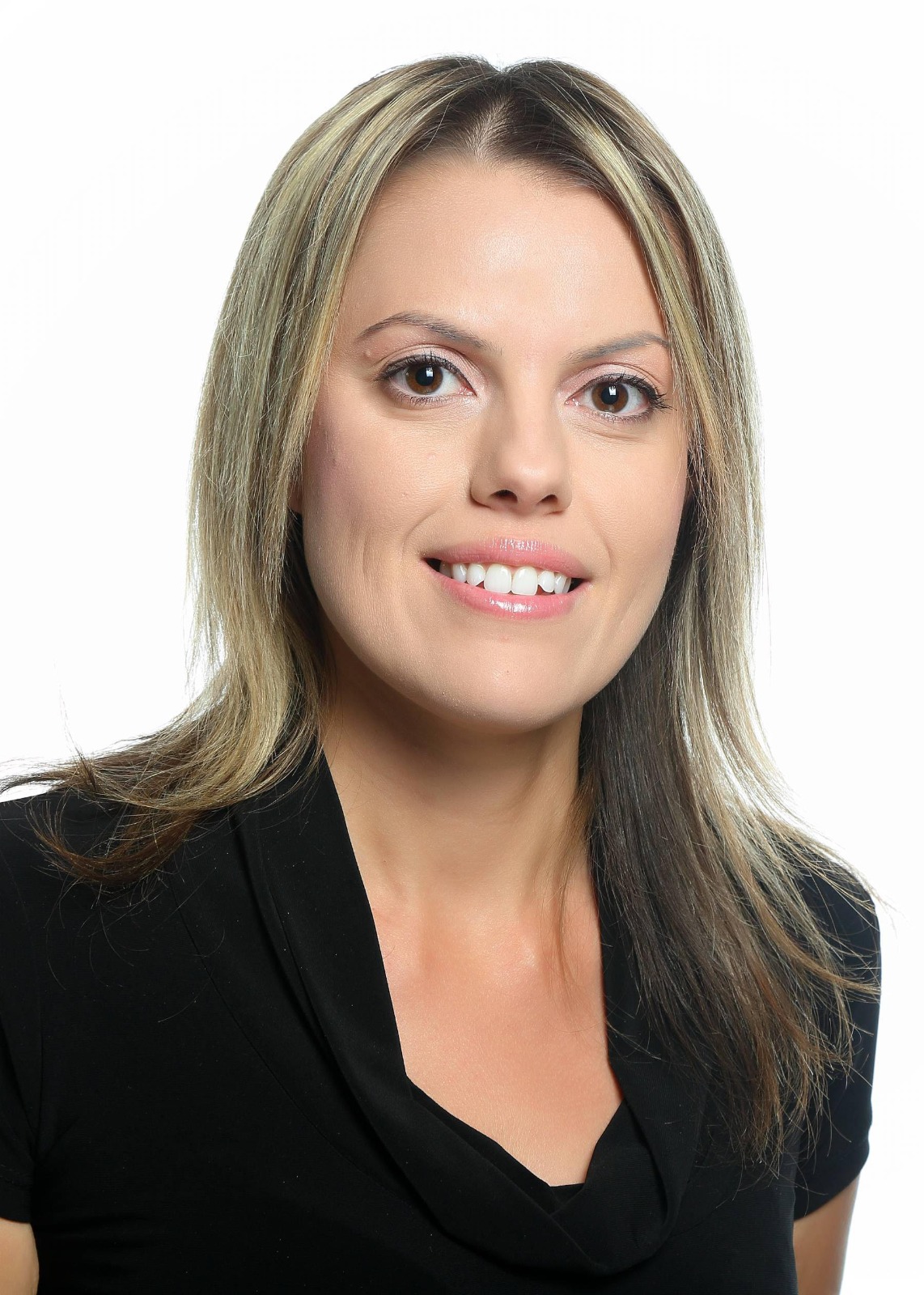Women Engineering Their Future in the Negev
By Judith Sudilovsky

Like many young women, Shira Haziz-Torgeman, who has a degree in architectural engineering and interior design from the Be’er Sheva Technical College, never imagined working in the engineering field. Today, thanks to a three-month Jewish National Fund-USA (JNF-USA) Lauder Employment Center internship at a leading architecture studio in Be'er Sheva, the Arad native is managing a project to develop solar farms throughout Israel and is among the exceptional women breaking barriers and gender employment stereotypes in Israel’s southern periphery.
“There aren’t a lot of women in this field of renewable energy and JNF-USA’s Lauder Center internship gave me the courage to step out of my comfort zone and try for new areas,” said Haziz-Torgeman, 29. “I hadn’t ever thought of the connection between what I had studied and this field, but because of the internship I realized that I can work in areas that are not just the classic planning of private buildings.”

Shira Haziz-Torgeman
JNF-USA’s Lauder Employment Center internship provided her with practical training and exposure to new topics and companies, she said, and opened her eyes to wider opportunities where she could integrate skills she gained through her studies and those gained during the internship.
“The Lauder Center really wants us to succeed and gives us all the tools we need to succeed,” she said, noting that her connection with the Center has continued even after her internship.
Since jobs are the first consideration for young adults when deciding where to live after graduating from university, making high quality employment opportunities available is critical in encouraging people to come to Israel’s north and south. Founded in 2015, JNF-USA’s Lauder Employment Center is a central component of the organization’s Blueprint Negev, a comprehensive strategy for bringing 500,000 new residents to the Negev by addressing the fundamental element of employment. The LEC acts as an overarching body in the creation of partnerships between Negev employers, employment agencies, and potential employees. The Center maintains relationships with over 300 employers and works with thousands of job seekers to facilitate easier access to job opportunities and quality candidates. This success and working model are being replicated in the Galilee, with LEC North to be located in Akko.
Proud of her work in the renewable energy field, Haziz-Torgeman said women should not be afraid of entering jobs in technical fields normally considered to be the realm of men.
“Though this is considered a very masculine field, there are a lot more women than before,” she said. “When I meet a young woman at the start of her career in this field, I know she has come from a place of courage.”
The work is challenging but rewarding, she said and there is plenty of room for growth and development.
While 35% of high-tech workers are women, the figure can be misleading because many of those women are in non-technical human resources and administration roles which come with significantly lower salaries, noted Ilana Ginzburg, 42, a human resource manager at Rezilion, an international high-tech cybersecurity company. She is also the head of the Committee for Gender Equality for the Be’er Sheva City Council. A mother of four, Ginzburg serves as a member of the Lauder Center Human Resources Forum.

Half of the students in B.S. programs in computer science degrees are women, she said, but that number slides down in graduate school to the point that almost no women are in computer science Ph.D. programs, she said.
People need to change their mindset in order to counter those statistics, she said.
“There are female programmers and high-tech professionals, but the situation is not that great. A lot of women won't even consider high-tech because of the stigma that it is a masculine field with long work hours and heavy investment and that it is hard to find a work/life balance,” said Ginzburg. “These stigmas are a bubble we have created. We can burst that bubble. Covid-19 has made it possible to work from home, and this has created more possibilities for women to participate in the high-tech field.”
As a member of the Lauder Center Human Resources Forum, she appreciates the investment made by the center to turn the Negev into a place with a strong, thriving job market, she said.
“It has given me so many opportunities for professional development and knowledge sharing, and I feel like I have been able to give it back to the forum, as well,” she said. “If I can do my millimeter in the world to give (other women a chance), I want to be the person who gave them that chance.”
But gender equality, she said, is not a “closed club for women,” and should be addressed by society as a whole. For there to be true equality by 2060 the effort must begin already in kindergartens and through personal examples, she said.
“Men and women need to be partners in this,” said Ginzburg. “I respect women who choose to stay home with their children of their own personal choice as much as I respect women who choose to focus on their career or those like me who choose to do both.”
But society has yet to give women the tools to be able to make those choices freely, she said.
Young mothers like Haziz-Torgeman have learned to wear their hats in many different ways. Sometimes the hat stays on straight, sometimes it is crooked, and other times it just falls from their head, said Haziz-Torgeman, but she knows that the important thing is to keep forging ahead.
“I get a huge sense of satisfaction from my work. Every day I learn something new. Just because you are a woman or a young mother you should not be afraid to seek out these jobs or stop yourself from reaching out to these fields,” said Haziz-Torgeman, herself the mother of a two-year-old daughter. “I hope I can raise my daughter without having to talk to her about breaking down barriers. I hope I am able to give her a place where she can be whatever she wants to be.”
“For women who are interested in this, I would advise them not to be afraid that it is a ‘man’s’ territory,” she added. “If it is really your passion, you will find your place and exceed.”
In honor of Women’s Month, thanks to the generosity of Jayne Klein and Paula Gottesman, all donations will be matched up to $1 million through May 31, 2021. Go to jnf.org/womensmonth to donate.
To learn more about JNF-USA’s Women for Israel, click here.
